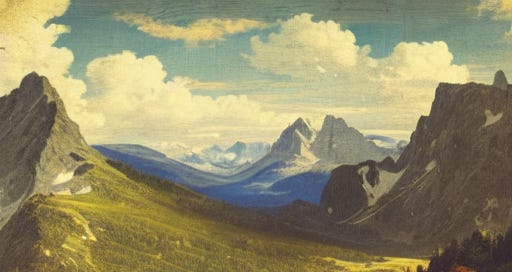At this point, the essay prompt for the Stanford GSB application has become relatively well-known: What matters most to you and why?
To me, wonder is the core driving force for my life. There’s a dual nature to wonder: to be curious and to be overwhelmed by awe.
I attempted to capture this sentiment, limited but also inspired by the word limit of 650 words.
This is the essay that I wrote.
“It’s a difficult time for your families, so be kind to your parents.” It was October 2008, and Mrs. Belles gathered our seventh-grade class. Of course, I wouldn’t fully comprehend the importance of the Great Financial Crisis until later. Beyond igniting my obsession with finance’s societal impacts, it also paralleled my own exploration of wonder: wonder as one part curiosity and one part awe.
Wonder: to feel curiosity
As a child of immigrants in Silicon Valley, I grew up immersed in a variety of diametrically-opposed ideas. My American peers espoused independence, while my Chinese peers paid homage to Confucian filial piety — expressiveness versus humility; independence to collectivism. How could both cultures be simultaneously correct, while adhering to such fundamentally divergent values? I spent many formative years contemplating these clashing ideas, enveloping myself in this cognitive dissonance. Curiosity was my guide as I explored Contradiction to seek greater truth.
If I’ve ever found Truth, it lies where seemingly-disparate domains independently converge to similar conclusions. But, some ideas are truly untranslatable. I discovered that these concepts aren’t fundamentally at odds but result from imprecise translations, compressing a wealth of Chinese history and beliefs, then mapping to their closest English analogues. As Wittgenstein noted, “The limits of my language mean the limits of my world.” We inhabit different worlds simultaneously because we interpret “reality” differently. One singular language no longer suffices. Language provides a lens to share mutual understanding of our realities, while wonder is the underlying essence driving curiosity.
Yet, I’ve come to realize that language is not merely cultural, but inclusive of discipline: the language of biology, literature, ethics, or even mathematics.
Wonder: overwhelming awe
Evariste Galois was a precocious and hot-headed French mathematician whose story abruptly ended when he was challenged to a duel following a romantic affair. Convinced he would die, Galois spent the night before frantically outlining his work in a final letter. The next morning, the 20-year-old Galois was killed.
I’d heard of religious zealots and political statesmen willing to die for their ideas, but a mathematician? Would I have anything that I cared about so much, that I would dedicate my last hours recording it for future generations?
In his final correspondence, Galois allowed us to understand the DNA of polynomial equations. Somehow this haunted genius created a novel perspective to view the world through the language of abstract algebra, something that endured even longer than Napoleon’s grand empire.
After I realized this, a million emotions coalesced into sheer amazement — pure wonder. Galois showed me a different way to imagine universal impact — creating a lens and language still present today in domains from engineering to finance.
Wonder: relationship to universality
The Great Financial Crisis was the first time I witnessed a mystical force — “finance” — stymie the inexorable march of the tech behemoth. As my family recovered from the damage these financial derivatives had wrought, my fear gave way to wondering curiosity, and eventually to wondering awe.
Just as I had discovered how language shapes our perceived realities, the same approach applies to exploring the lenses of finance. Finance revealed itself as the intersection of economics, psychology, politics, and more. I dug into finance’s esoteric jargon, discovering a language and reality linking cultures and nations.
Only by understanding these critical components can I create change: molding the dispossessive forces of finance to serve all people. And by changing finance, the links connecting the world’s exchange of inventions and ideas, we change the world. While rife for disruption, the financial system is the nexus connecting humanity, with an absolute magnitude to wonder at.
The Great Financial Crisis crystalized my understanding of the intersection of the two sides of wonder, language’s role in shaping reality, and also my potential impact. Ultimately, wonder evokes humility — acknowledging a totality greater than each of us, something more universal.




love this - look forward to more writing that illuminates all that finance has taught you (as I try to come up to speed myself!